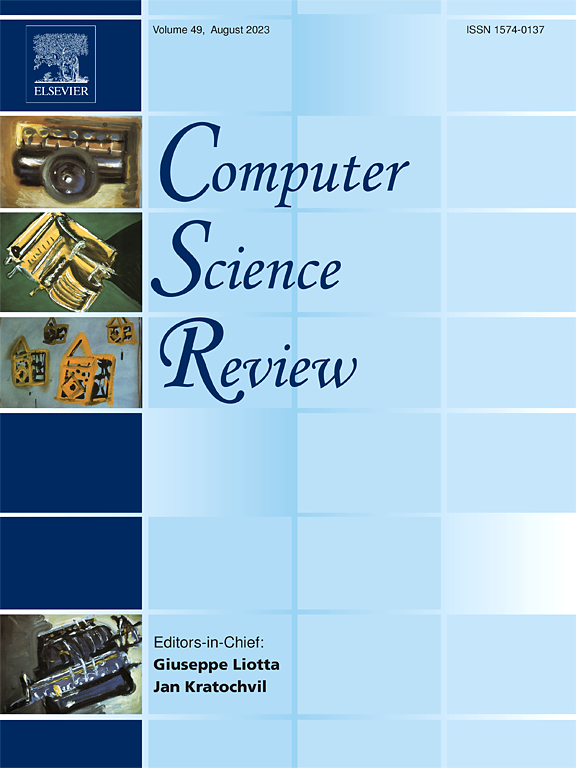A comprehensive survey of golden jacal optimization and its applications
IF 12.7
1区 计算机科学
Q1 COMPUTER SCIENCE, INFORMATION SYSTEMS
引用次数: 0
Abstract
In recent decades, there has been an increasing interest from the research community in various scientific and engineering fields, including robotic control, signal processing, image processing, feature selection, classification, clustering, and other issues. Many optimization problems are inherently complicated and complex. They cannot be solved by traditional optimization methods, such as mathematical programming, because most conventional optimization methods focus on evaluating first derivatives. On the other hand, metaheuristic algorithms have high ability and adaptability in finding near-optimal solutions in a reasonable time for different optimization problems due to parallel search and balance between exploration and exploitation. This study discusses the basic principles and mechanisms of the GJO algorithm and its challenges. This review aims to provide valuable insights into the potential of the GJO algorithm for real-world and scientific optimization tasks. In this paper, a complete review of the Golden Jackal Optimization (GJO) algorithm for various optimization problems is done. The GJO algorithm is one of the metaheuristic algorithms invented in 2022 and inspired by the life of natural jackals. This paper's complete classification of GJO in hybrid, improved, binary, multi-objective, and optimization problems is done. The analysis shows that the percentage of studies conducted in the four fields of hybrid, improved variants of GJO (binary, multi-objective), and optimization are 11 %, 44 %, 9 %, and 36 %, respectively. Studies have shown that this algorithm performs well in real-world challenges. GJO is a powerful tool for solving scientific and engineering problems flexibly.
金豺优化及其应用综述
近几十年来,研究界对各种科学和工程领域的兴趣日益浓厚,包括机器人控制、信号处理、图像处理、特征选择、分类、聚类和其他问题。许多优化问题本质上是复杂和复杂的。传统的优化方法,如数学规划,无法解决这些问题,因为大多数传统的优化方法都集中在求一阶导数上。另一方面,元启发式算法由于并行搜索和探索与开发的平衡,对于不同的优化问题在合理的时间内找到近最优解具有很高的能力和适应性。本研究讨论了GJO算法的基本原理和机制及其面临的挑战。这篇综述旨在为GJO算法在现实世界和科学优化任务中的潜力提供有价值的见解。本文对金豺优化(Golden Jackal Optimization, GJO)算法在各种优化问题中的应用进行了全面的综述。GJO算法是2022年发明的一种元启发式算法,其灵感来自于自然豺狼的生活。本文对混合、改进、二值、多目标和优化问题中的GJO进行了完全分类。分析表明,在GJO的杂交、改进变体(二元、多目标)和优化四个领域进行的研究比例分别为11%、44%、9%和36%。研究表明,该算法在现实世界的挑战中表现良好。GJO是灵活解决科学和工程问题的有力工具。
本文章由计算机程序翻译,如有差异,请以英文原文为准。
求助全文
约1分钟内获得全文
求助全文
来源期刊

Computer Science Review
Computer Science-General Computer Science
CiteScore
32.70
自引率
0.00%
发文量
26
审稿时长
51 days
期刊介绍:
Computer Science Review, a publication dedicated to research surveys and expository overviews of open problems in computer science, targets a broad audience within the field seeking comprehensive insights into the latest developments. The journal welcomes articles from various fields as long as their content impacts the advancement of computer science. In particular, articles that review the application of well-known Computer Science methods to other areas are in scope only if these articles advance the fundamental understanding of those methods.
 求助内容:
求助内容: 应助结果提醒方式:
应助结果提醒方式:


